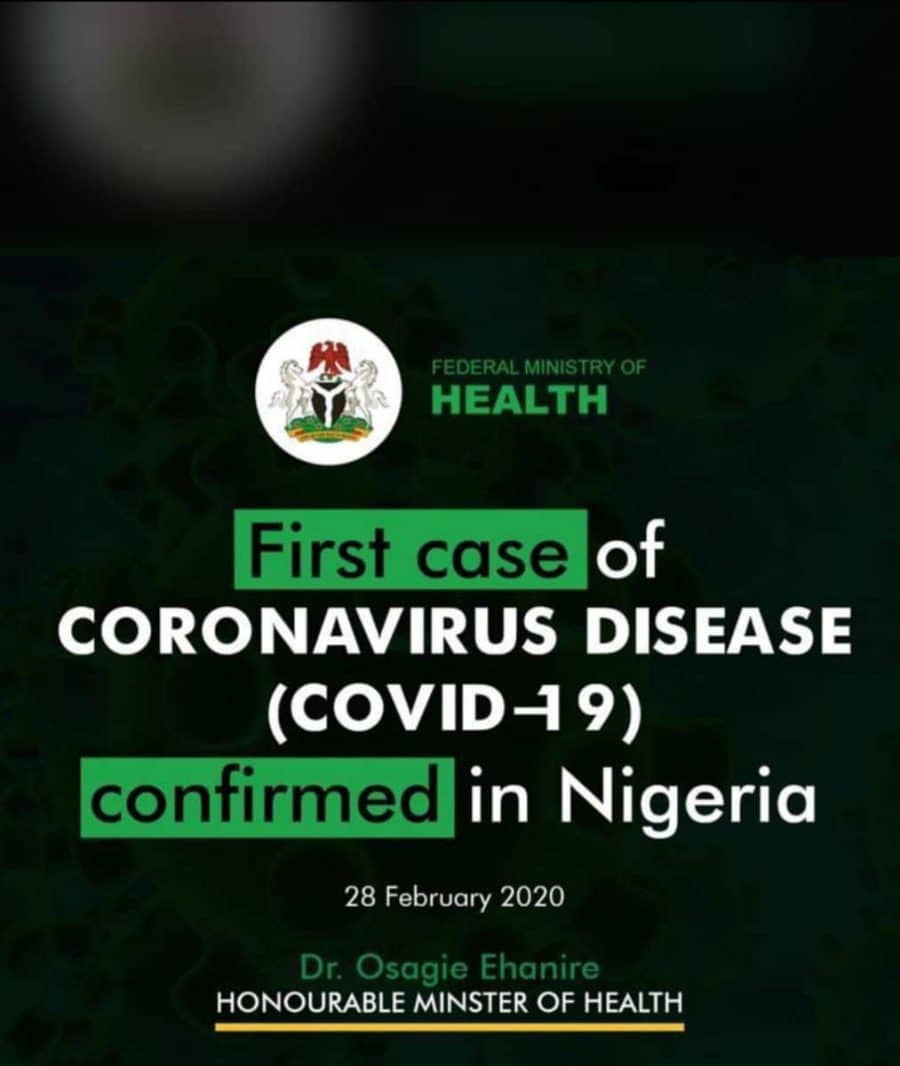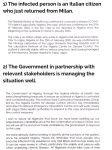The first case of Coronavirus in Nigeria was recently confirmed in Lagos
but this is not a reason to panic, the patient is under the care and watches in isolation and all the likely contacts are being traced and watched. Panic and worries won't help us stay safe from coronavirus and unaffected, there are certain precautions we can all take that can reduce our chances of getting infected which are;
How to stay safe from coronavirus in Nigeria?
- Wash your hands with soap and water.
- Maintain a distance of about 2 meters from anyone coughing or sneezing.
- People with cough or sneezing should stay at home or avoid crowds.
- Stay hydrated.
- Reduce how often you touch your face, eyes, nose and mouth with your hands.
- Get a hand sanitizer
Coronavirus symptoms?
Fever, cough, runny nose, sore throat and trouble breathing are some of the most common symptoms of the novel coronavirus (CoV).
Coronaviruses (CoV) are a large family of viruses that cause illness ranging from the common cold to more severe diseases. Common signs of infection include:
- Respiratory symptoms,
- Cough,
- Shortness of breath and
- Breathing difficulties.
In more severe cases, an infection can cause pneumonia, severe acute respiratory syndrome, kidney failure and even death. Older people and people with pre-existing medical conditions are more vulnerable to the virus," the World Health Organization says.
How to stay safe in your working place from the Coronaviruses (CoV)
It's important that companies encourage sick employees to stay home and don't return to work until their temperature has reduced below 100.4 degrees Fahrenheit (37.8 degrees Celsius) for at least 24 hours, without the help of fever-reducing or other symptom-altering medicine, the CDC said.
Here is how to stay safe in your working place;
- Clean all frequently touched surfaces in the workplace, and make sure everywhere in your place of work are squeaky clean.
- The employee needs to get a disposable wipe to clean all commonly used surfaces (for instance, doorknobs, remote controls, desks) before each use."
- Cover your mouth and nose properly with the tissue before sneezing and coughing.
- Wash your hands thoroughly for at least 20 seconds.
The World Health Organization recommends staying at least 3 feet (or 1 meter) away from anyone who may be infected.
If you are the one that feels sick, when you cough or sneeze, cover your entire mouth and nose. But do not use a hand. Use either your bent elbow or tissue you throw away immediately.
But there are certain forms of facial hair that can hinder respirators from actually working. The CDC has therefore created an infographic showing which facial hair types are more dangerous than others.
 Who's at greatest risk of Coronavirus?
Who's at greatest risk of Coronavirus?
According to WebMD Health, it affects men's, older people and does who smoke and people with pre-existing medical conditions (such as diabetes and heart disease).
We will also advise that everyone beware of unverified WhatsApp BCs advising you to drink something, bath in something or use something unusual. Those kinds of messages is potentially harmful and helpless against the infection. Follow the advisory given by @Fmohnigeria and @NCDCgov and Wellvis
Let us stay safe, together we can beat this.
If you have any concerns or suspicions, kindly reach NCDC on 0800-970000-10 (Toll-Free Call Centre)
Combine sources from:
https://www.cnn.com › health
How you and your workplace can protect yourselves from the novel coronavirus - CNN




 Who's at greatest risk of Coronavirus?
Who's at greatest risk of Coronavirus?